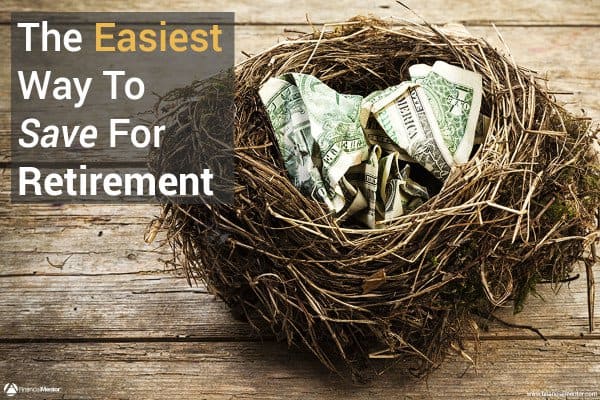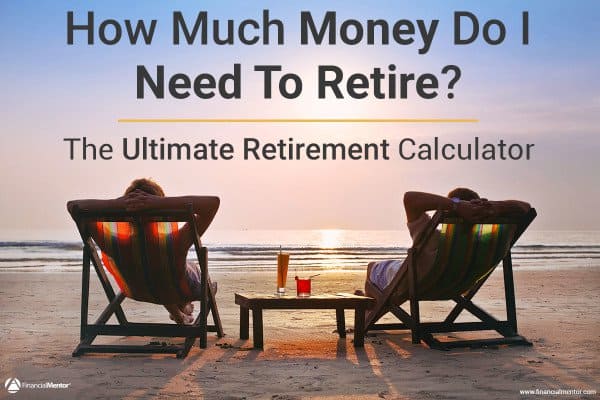Discover Why Intrinsic Motivation Drives Us To Seek Early Retirement
Key Ideas
- Learn the critical difference between intrinsic and extrinsic motivators.
- Reveals why intrinsic motivation drives you to early retirement.
- How “Drive” can help you make sense of your path to early retirement.
Money isn't the only motivator. It's not even the most powerful.
Humans are motivated by many different things: money, prizes, power, praise, recognition, prestige, ego, time off, sex, and much more.
But on a more basic level, what motivates us can be broken into two categories – intrinsic and extrinsic. This distinction is critical according to Dan Pink in his new book, Drive.
Extrinsic is the old carrot-and-stick approach – the hope of gain and the fear of loss. This includes payroll and bonuses.
Intrinsic motivators are more powerful and can be broken down into 3 categories:
- Autonomy – Control over your own work and destiny.
- Mastery – Continual improvement.
- Purpose – Honor personal values and be part of something bigger than just yourself.
Get This Article Sent to Your Inbox as a PDF…
In a throwback to Maslow's hierarchy of needs, Pink points out that when a worker feels fairly compensated, then intrinsic motivators may have a more powerful influence than traditional extrinsic motivators (more money).
When your basic needs are taken care of, self-actualization and esteem become a higher priority than additional financial compensation.
My own life experience and working with so many money coaching clients supports this theory.
In addition, workplace research corroborates this finding with studies showing monetary rewards designed to increase performance may have the opposite effect.
This is particularly true for autonomous workers in jobs requiring innovation and problem solving, but less true for workers completing repetitive tasks.
Why “Drive” Is Essential Reading
The “New Retirement” is a huge issue in today's workforce.
The crux of the new retirement is that lifespans have increased 30 years in the last 100, making the old retirement financially difficult to obtain and not very fulfilling.
Most people can't save enough to support 30-40 years of leisure. Even fewer define happiness as working like a dog for 40 years so you can do nothing of substance for the last 30 years while health declines.
Instead, the new retirement is following Pink's prescription to perfection.
Once workers satisfy their basic needs, they become less motivated by money, and more motivated by intrinsic factors. This causes early departure from traditional careers into part-time work and encore careers.
Employers would be wise to wake up. Employees are moving on when their basic needs are met, and it's needlessly costing companies a fortune. Life is short, and employees want fulfillment during their brief journey on this earth.
The Pursuit Of Fulfillment Above Maximum Wealth
The call for fulfillment usually occurs around the time a prospective client is marginally financially independent. They're typically a little short of obvious financial freedom, but close enough to be driven by intrinsic motivation to make the call. They're restless and don't understand why.
They've worked a good career, built a solid nest egg, and now something is different. However, they don't know how to put all the pieces together.
Sound familiar? Many of you can probably relate. I know that was my experience in my early 30's.
It was a very confusing time because I “had it made” by everyone's standard – except my own. I was making good money, yet there was something missing… something more.
I knew I wanted to change careers, but couldn't sort the issues out. If it was about maximum wealth I would have happily stayed in the investment management business. Blogging and coaching has always been driven more by fulfillment than making money.
Unfortunately, Pink's book didn't exist back when I sorted these issues out. It could have helped me understand what was going on, and would saved me a lot of trial and error.
It took me years to work through the issues because there was nobody to show me the ropes. I fumbled through by intuition alone.
I recommend the book. It's a smarter, more efficient path to the knowledge.
What This Means To You…
In a nutshell, if you're financially successful (which all my readers will eventually become, of course 😎 ), then you'll transition from extrinsic motivation to intrinsic motivation. It's as inevitable as night and day.
You may not realize it now, but when your basic needs are met for the lifestyle you feel comfortable in, then the issues discussed in this book will raise their heads and demand attention… whether you like it or not.
Get Pink's new book, Drive, and it will help provide a basic understanding of the landscape.
I hope this resource provides you with good value, and I welcome your thoughts in the comments below…
Anybody can learn to build a secure retirement -- and you don't need a financial advisor.
My course, Expectancy Wealth Planning, has been called "the best financial education on the internet" and provides all the knowledge you'll ever need to build the life -- and retirement -- of your dreams.





















Hey Todd –
I recently came across a “wealth accumulation” vehicle- sounds very interesting and was wondering if you’ve covered it or would you recommend?
Indexed universal life (IUL) – not for the life insurance but for the returns and pre-taxed money, also you can “loan” yourself against the cash value?
Your thoughts?
thanks
Joe
@Joe – I’m not an expert on IUL. I generally avoid insurance products because I believe you should only insure that which you cannot afford to lose – things like fire insurance for the house and major medical. The rest of the risk I just carry personally and manage my life accordingly. The fundamental issue is that the only way an insurance company can make a profit is to pay out less than it takes in. Thus, by definition it is a bad deal. It is just business common sense. With that said, there are special circumstances where an external value stream to the insurance cost equation can change things. For example, some insurance products offer tax deferral (external value stream) on large amounts of money that might possibly make sense in certain circumstances for high income individuals. The tradeoff, however, is you usually lose a lot of the investment flexibility necessary to build wealth over many years or pay higher fees thus negating some of that value stream. Overall, I just avoid the whole situation. With that said, you would have to examine each product individually, the cost structure built into it, and the value streams that flow from it to decide if it is a good deal for your specific circumstances. For my situation, I generally just avoid it and keep things simple. Life is complicated enough without adding complicated insurance products to the portfolio mix. Hope that helps…
Oh, BTW this conversation is supposed to be about the New Retirement and external/internal motivation… not insurance products. I was just trying to be nice and respect your question (and now I’m redirecting the conversation to get things back on track…)
Hi Joe. I recently came across this index universal life (IUL) which you have been looking at. I’ve been researching this for a while now so thought I would chime in a bit since there are very few info on this topic
1) Investment-wise, IUL is actually a rather mediocre instrument. While the cash value of your policy is exposed to a market index, depending on the structure of the policy, the cash value might represent only a portion of the premium (due to management fee, admin fee and other gimmicks). In short, IUL is kind of similar to a mutual fund, where a market compound return of 7% could very well shrink to, say 1% over 5 or 10 years.
2) That being said, if you’re still convinced that it could be used for other business purposes. Here’s a list of ideal qualities in the policy I would be looking at:
– Minimal death benefit
– Minimal ancillary fees
– Maximal cash value to market index
– Maximal cap rate to a market index (as opposed to a participation-rate model)
– Minimal rate of loan (against cash value)
As with whole life insurance, the devil is in the detail. Either way, you’ll have to inject a lot into premium and paid-up addition so that the account can grow fast. Still not a preferred option if solely used for investment purpose though, and the usual liquidity limitations Todd mentioned in his Whole Life Essential Guide still apply. As usual, learning how insurance companies generate their profit and hedge against the risks is probably more fruitful than investing in their products yourself.
Hope that helps,
Tom
As I said, I really don’t want the direction of these comments heading toward life insurance. That’s not the subject of this post. I’m building out an entire life insurance section here https://www.financialmentor.com/category/financial-advice/life-insurance to cover those topics. Thanks.
This relates back to another article i read (which i wish i had a link to) which basically said that money *does* buy happiness up until you reach a certain point. It turns out that a pay increase created a proportional increase in overall happiness up to the $70,000 mark. After that there was a sharp drop off.
I think this could easily be explained by what you just said: at that point your basic needs are easily met (with some excess if you are smart about it) and suddenly your priorities shift.
For some of us, we don’t even need to reach that point before we realize that working for 40+ years is a bad deal and that there has to be another way… For me, that was after about.. oh.. 3 years of working. 🙂
@Nate – Yes. I have another ebook forthcoming on “Money & Happiness” which discusses this. It starts with your exact point that money does correlate with happiness up to a base level, then the correlation completely falls apart after that. This bridges the topic of true wealth, enoughness, and how to build your life plan for maximum fulfillment. It’s fun stuff… and very free-ing (if that is a word?)
Hi Todd,
Thanks for the recommended reading. I just got “Drive”, and I am really enjoying it. I will comment more once I have completed it.
Thank you,
Steve
@ Steve – Glad you are enjoying it. I know I got a lot out of it. Todd